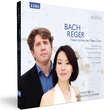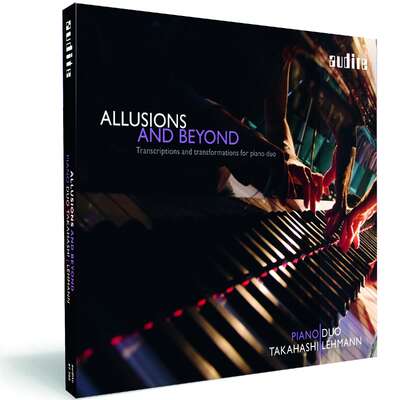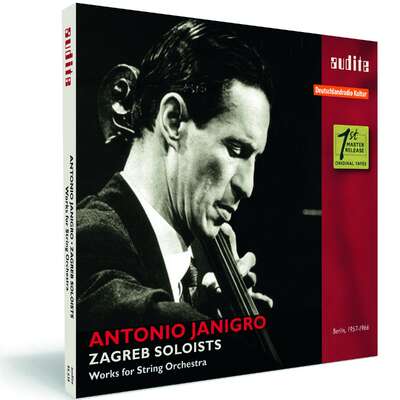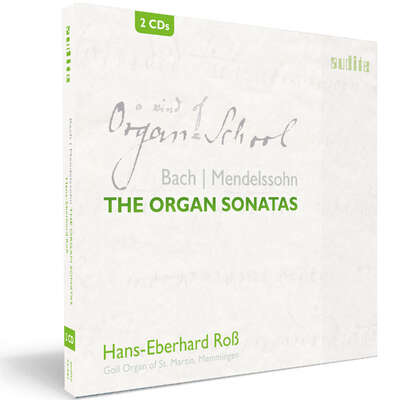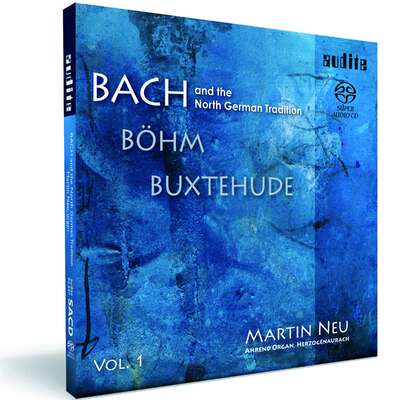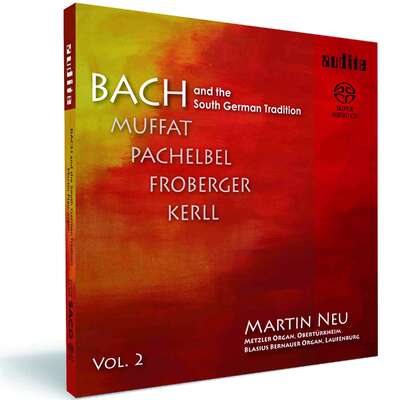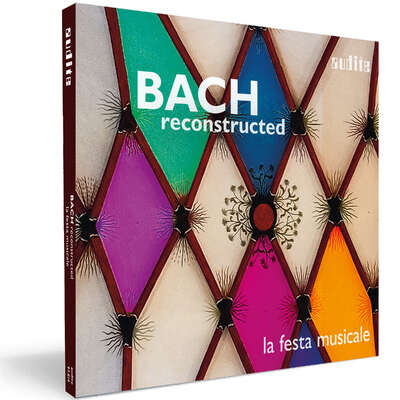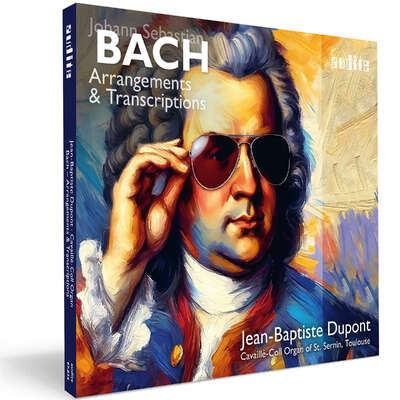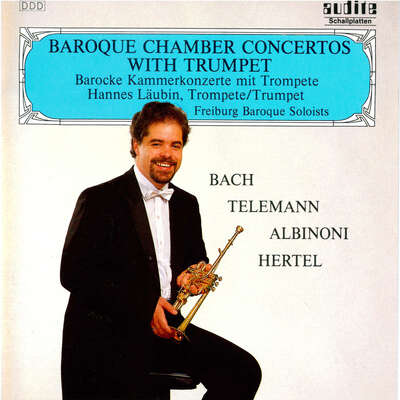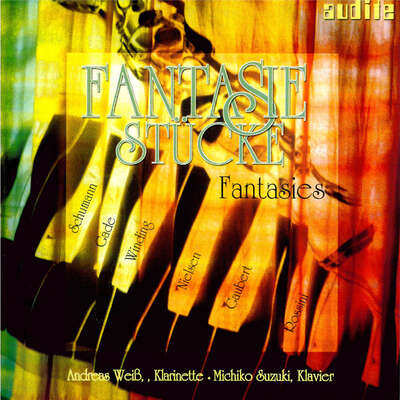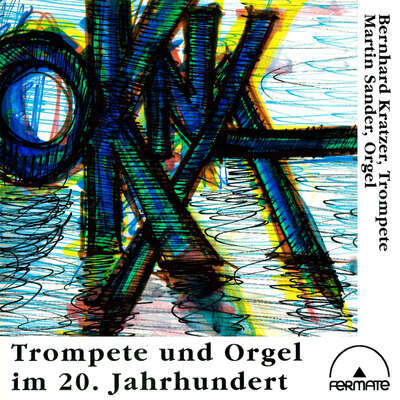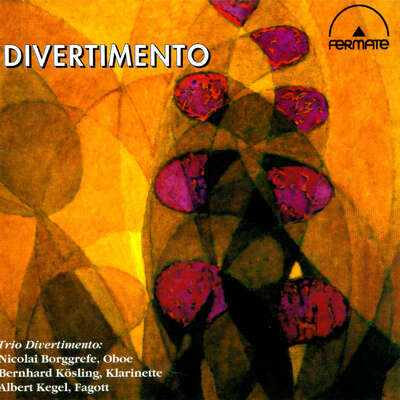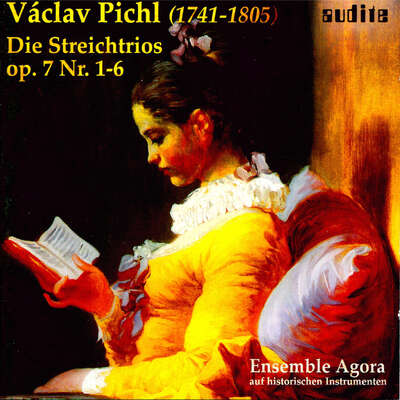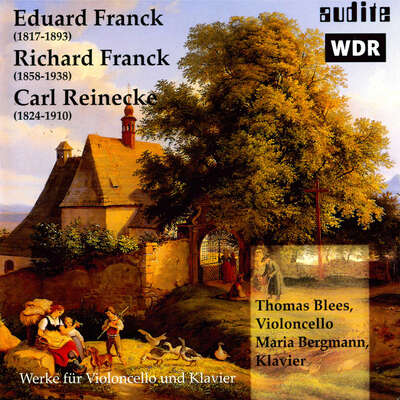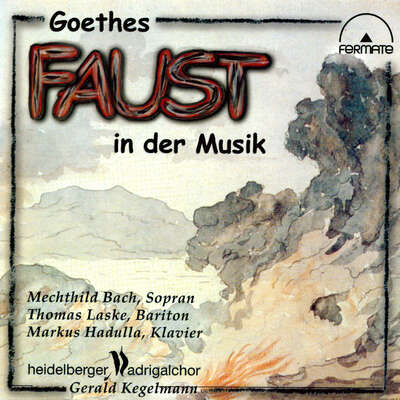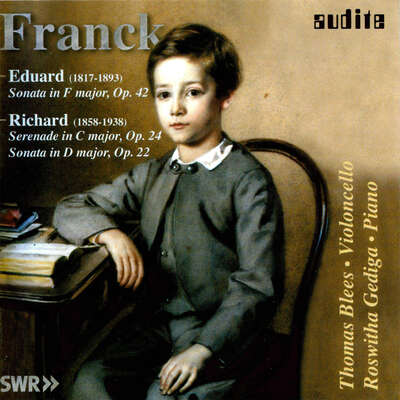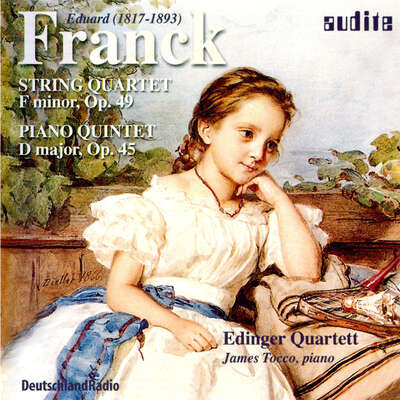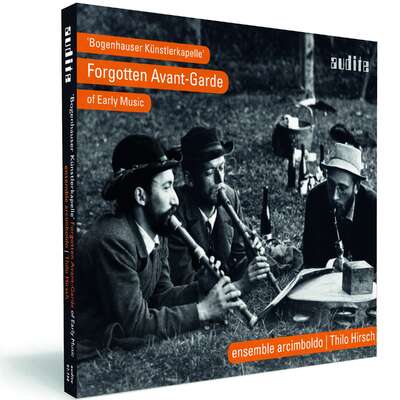
Auto-Rip
Seinem musikalischen Fixstern Johann Sebastian Bach huldigte Max Reger nicht nur als fantasiereicher Interpret, sondern auch als einfühlsamer Bearbeiter, um etwa zahlreiche Orgelwerke sowie sämtliche Brandenburgischen Konzerte für Klavier zu vier Händen verfügbar zu machen.mehr
"Die Interpretationen fallen durch ein ebenso alertes wie feinfühliges und vor allem extrem transparentes, dynamisch exzellent variiertes sowie sehr farbenreiches Spiel auf, das die Brandenburgischen in einem neuen, attraktiven Licht erscheinen lässt." (Pizzicato)
Titelliste
Details
| Bach-Reger Transcriptions for Piano Duet: Brandenburg Concertos Nos. 1-6 & Organ Works | |
| Artikelnummer: | 23.445 |
|---|---|
| EAN-Code: | 4022143234452 |
| Preisgruppe: | BCE |
| Veröffentlichungsdatum: | 6. September 2019 |
| Spielzeit: | 128 min. |
Zusatzmaterial
Informationen
Die neue Aufnahme mit dem PianoDuo Takahashi|Lehmann präsentiert seltenes Repertoire für Klavierduo: Die vollständige Einspielung von Regers Bearbeitungen der Brandenburgischen Konzerte J.S. Bachs sowie weitere seiner Bearbeitungen Bach'scher Werke.
Max Reger war eine zentrale Persönlichkeit der Bach-Renaissance zu Beginn des 20. Jahrhunderts. Aufgrund seines polyphonen Kompositionsstils wurde er zudem von seinen Anhängern als 'moderner Bach' verehrt. „Seb. Bach ist für mich Anfang und Ende aller Musik; auf ihm ruht und fußt jeder wahre Fortschritt! Dass Bach so lange verkannt sein konnte, ist die größte Blamage für die 'kritische Weisheit' des 18. und 19. Jahrhunderts." Doch nicht nur als Interpret von Klavier-, Kammer- und Orchestermusik setzte er sich lebenslang für sein musikalisches Vorbild ein, sondern auch als Herausgeber mehrerer Orchestersuiten und Konzerte sowie als Bearbeiter zahlreicher Orgelwerke. Der Thomaskantor Karl Straube lobte ihn dabei für die „vollendete Art, mit welcher er es verstanden hat, den Klangcharakter der Orgel auf dem Klaviere wiederzugeben".
Besprechungen
Neue Musikzeitung | 17. Juni 2021 | Dr. Michael Kube | 17. Juni 2021 | Quelle: https://hoerbar.... HörBar
Nach drei Alben mit Originalkompositionen und Transkriptionen aus gleich drei Jahrhunderten (alle bei audite) hat sich nun das PianoDuo Takahashi / Lehmann der Reger’schen Ausgabe angenommen und verfolgt dabei einen interessanten eigenen Weg.<br /> <br /> Deutlich ist ihrer Artikulation die Auseinandersetzung mit dem aktuellen Stand der Praxis anzumerken [...] Verbunden mit dem direkten Klang und einer angenehm trockenen Akustik legt die Produktion damit auch architektonische Strukturen frei [...] Unter verschiedenen Aspekten eine ebenso starke wie spannende Einspielung!Mehr lesen
Deutlich ist ihrer Artikulation die Auseinandersetzung mit dem aktuellen Stand der Praxis anzumerken [...] Verbunden mit dem direkten Klang und einer angenehm trockenen Akustik legt die Produktion damit auch architektonische Strukturen frei [...] Unter verschiedenen Aspekten eine ebenso starke wie spannende Einspielung!
Musik & Theater | 09/10 September/Oktober 2020 | Walter Labhart | 1. September 2020 Bachs Terzenliebe
Das Piano Duo Takahashi/Lehmann bringt mit präzisem Zusammenspiel, rhythmisch strengem Musizieren und vielerlei Klangfarben die besten Voraussetzungen mit. Die Abgrenzungen von Solo- und Tuttipassagen erfolgen stets mit ebenso viel Feingefühl wie Nachdruck, klangliche Härten bleiben jedoch aus. Mehr lesen
www.musicweb-international.com | Tuesday May 5th | Stuart Sillitoe | 5. Mai 2020 | Quelle: http://www.music...
Anyone who knows me will appreciate my liking for the German composer Max Reger, who due to his vast output of organ music and his fondness forMehr lesen
Reger's transcriptions for piano four-hands of the Brandenburgs had their beginnings in a request from the Peters publishing house for a two-hand version in 1904. With the Fifth Concerto giving him particular difficulties the following year, this led to numerous attempts to arrange the work until he came up with the one we have here. Up until then, Reger had concentrated on transcribing Bach’s organ music, but agreed, with the resulting edition selling out within two years and needing to be re- published. It also led to a new request, for Reger to produce transcriptions of the Orchestral Suites.
These transcriptions are, therefore, a labour of love, with the result being something quite wonderful. As already stated, I do have recordings of some of these transcriptions, but sadly not all, and I must admit to having returned to them regularly, enjoying them every time I listen to them. This recording only served to further my liking for these pieces; Reger managed expertly to keep the nature and spirit of the original whilst making them more accessible to everyone. The result being wonderful music and being arranged wonderfully well; what is more is that here, in the Piano Duo Takahashi|Lehmann, we have a performance that surpasses each of the performances of the concertos that I already have. The performance is excellent with the Piano Duo Takahashi|Lehmann showing great dexterity and understanding of each other which leads to wonderful ensemble playing. I did not miss the orchestra once, which is something I can’t say about every recording I have heard before.
The other three works on this set are all transcriptions of Bach’s organ pieces, and I suppose the obvious place to start is the now infamous Toccata & Fugue in D minor, BWV565. With questions still asked about its composition, it is probably the piece that most people will associate as being by Bach. Here the performance by the Piano Duo Takahashi|Lehmann lives up to the sparkling transcription. Here, if anything, Reger added new impetus to the work, with the performers rising to every challenge set. However, the first transcription of an organ piece we encounter on this set is the wonderful Passacaglia in C minor, BWV582, a real tour de force for the organist. This arrangement makes the most of Bach’s sonorities, something that is brought out to the full here. The final work on the disc is the popular Prelude & Fugue in E flat major, BWV552 'St Anne', another truly wonderful organ work, Reger made two arrangements of this piece, the other for solo piano. Again, the Piano Duo Takahashi|Lehmann sparkle in their performance, and their's again, is the finest recording of this transcription that I have heard, making this a wonderful inclusion in this set.
As already stated, Norie Takahashi and Björn Lehmann are wonderful throughout, their's is a real partnership, with the resulting performance being excellent, one which has soon become my "go-to" recording for these works and Reger transcriptions in general. The recorded sound is also excellent which only serves to heighten the enjoyment of this performance. The accompanying booklet, in German and English is good, but a little more insight might have been good. But this is no reason not to invest, and it will be a real investment, in this excellent recording, especially as it retails for little more than the price of a single CD. One of the finest recordings of transcriptions of Bach that I have heard in a very long time.
Fanfare | March 2020 | David Reznick | 1. März 2020
“Mommy! Mr. Reger is picking on me again! He said I was [sob!] a pedestrian blockhead! And I wasn’t even walking! I was riding in the backMehr lesen
But that dream was also a prophecy: Max Reger, a composer who gets many more pages in music reference books than people standing in line waiting to buy recordings of his music, eventually called me a pedestrian blockhead. This was an epithet he reserved for anyone who disagreed with his approach to the music of Bach. Carefully placing his monocle in full Charlie McCarthy position, and staring at me with the expression of a kipper who thought he owned the world but suddenly found himself on a plate, skewered by a 24k gold fork, continued: “I am alerting you in advance that my perhaps ‘too personal’ way of playing, and accordingly of editing Bach will very much challenge the objections of the pedestrian blockheads … they will consider my many nuances … too modern and entrench themselves behind the wall of mental laziness, insisting that Bach should be played classically! Such people, who are more Catholic than the Pope, [Oh my, I hope the long line of rabbis and cantors from whom I am descended never see this! DR] cannot be helped.” Oh, I don’t know—maybe I am a pedestrian blockhead. That would explain why I have so much trouble finding a hat that will fit me.
One of his colleagues says that Reger was “… capable of expressing, in the most radical way, the idea that the work he had beneath his hands was at that moment his property.” This is a very serviceable idea, and no doubt occurred to the pickpocket who had liberated my wallet while I was in Riverside, California staring with fascination at the Parent Orange Tree (one of, and perhaps the only, tourist attractions in that city).
So, as you see in the headnote above, Reger found the time to transcribe lots of Bach’s music, including all of the Brandenburg Concertos, for two pianos. This was immensely valuable, for it had the potential to bring this great music to people all over the land, who lived far from the big cities and couldn’t go to concerts, and therefore were doomed to musical ignorance (unless they somehow found the power to go out and buy a record player or a radio—Reger lived well into the 20th century).
So nobody really needed a piano reduction. Well, what did it accomplish? I’m sure that whenever it was played, many audience members thought to themselves, “Wow! It sounds sort of like the Brandenburg Concertos!” and then, around the middle of the second movement, those ideas morphed into the chances that they’d be selling sandwiches during the intermission. So at least this music boosted the take at the concession stand.
Because, after all, the Brandenburgs are totally dependent upon the orchestration. The Brandenburg No. 2 without the high trumpet? It’s like the difference between a veterinarian and a taxidermist (with a taxidermist, you get your dog back). Bach was as great an orchestrator as he was in every other phase of music. And if somehow we could arrange to have him listen to this disc—well, Bach told his dear son C. P. E. (known affectionately in the family as Seepy) that his music faded, like Prussian blue; just think what he’d say to Reger.
If you’re a part of a piano duo, you might want to play some of this music as a stunt. But contemplating the level of difficulty, you’d better leave plenty of practice time, and you’d better be at least as good as the consummate pianists, Norie Takahashi and Bjorn Lehmann, who play flawlessly, at breakneck speed, and as if they were Oscar Peterson seeing how many notes he could cram into a measure of 4/4 time.
Well, you will know immediately whether or not you want this recording, and if you do, it will never be played better than it is here.
American Record Guide | February 2020 | James Harrington | 1. Februar 2020
These are Max Reger’s piano duet transcriptions of Bach’s 6 Brandenburg Concertos made in 1904-1905 and three other major organ works. Reger wroteMehr lesen
www.amazon.de | 13. Januar 2020 | Dennis E. Ferrara | 13. Januar 2020 | Quelle: https://www.amaz...
[...] This new and exciting two-cd set by these brilliant pianists, Norie Takahashi and Bjorn Lehmann present these masterpieces in a fresh, colorfulMehr lesen
Excellent program notes are available in German and English. This 2019 set is highly recommended for all pianists, musicians and piano aficionados alike.
www.ClassicsToday.com | 01.01.2020 | Jed Distler | 1. Januar 2020 | Quelle: https://www.clas... Incisive And Joyful Bach/Reger Brandenburgs
In every way these contenders yield to the Takahashi/Lehmann duo’s ensemble proficiency and musical insights. [...] The duo brilliantly streamlines the arrangements’ notey upholstery by virtue of brisk tempos, discreet pedaling, incisive articulation, and sheer joy in music making.Mehr lesen
Badische Zeitung | Dienstag, 10. Dezember 2019 | Johannes Adam | 10. Dezember 2019
Komponierte Interpretation
Reger als Bach-Bearbeiter
Lebenslanger Maßstab und Mentor Max Regers war Johann Sebastian Bach. Ihm hat der Spätromantiker nachgeeifert, ihn hat er gespielt – undMehr lesen
Gramophone | December 2019 | Jeremy Nicholas | 1. Dezember 2019
Concertos date from the early 1900s. They were so well received, so we are told, that they had to be reprinted only two years later. Who was buyingMehr lesen
Reger’s main preoccupation as a Bach transcriber was, of course, with the organ works and it is his profound knowledge of counterpoint that makes these Brandenburg arrangements so successful. Moreover, while a couple of Brandenburgs is usually quite enough at one sitting (for this writer, at least), here, once I started I couldn’t stop. It’s many a long year since I enjoyed this marvellous, life-enhancing set so much. Who knew that Reger could be such fun?
A great deal of this is down to the immaculate pinpoint ensemble of Norie Takahashi and Björn Lehmann and the rhythmic buoyancy of their execution. With properly brisk tempos, the outer movements bubble along with an insatiable joie de vivre. They use a minimum of pedal, too, so the complex voicing is always crystal-clear, underpinned by a springy, resonant bass line, while the upper treble, which so often in present-day recordings flies off into a different airier acoustic, here is firmly linked to the lower registers. The piano sound is, to my taste, ideal. All the concertos are recorded on a splendid Yamaha with the exception of No 5. That is played on a Steingraeber in a barely noticeably different acoustic/location.
As far as Reger’s organ transcriptions are concerned, Takahashi and Lehmann offer us two works (the ubiquitous Toccata and Fugue in D minor and the St Anne Prelude and Fugue) which Reger also arranged for piano solo, together with his (only) version of the mighty Passacaglia, BWV582. These provide a judicious contrast to the boisterous Brandenburgs.
Here, in short, is a pair of discs to return to often. In fact, my one complaint about the whole enterprise is the deathless prose of its prolix booklet.
www.amazon.de | 9. November 2019 | 9. November 2019 | Quelle: https://www.amaz...
A delight. Such skill and musicality. I hate to say it but I prefer these piano versions to the originals.Mehr lesen
Piano News | November / Dezember 6/2019 | Oliver Buslau | 1. November 2019
In den Bearbeitungen der Orgelwerke arbeitet das Duo die durch Verdopplungen in den Klavierklang eingearbeiteten Orgelregister herrlich heraus und zeigt den Komponisten als Meister im Umgang mit Klavierfarben.Mehr lesen
The Guardian | Sun 27 Oct 2019 | Nicholas Kenyon | 27. Oktober 2019 | Quelle: https://www.theg...
Home listening: Bach-Reger, Josquin des Prés and Western Wind
Takahashi/Lehmann make light work of Reger’s Brandenburg duet transcriptions. Plus, more Josquin from the Tallis Scholars
[...] these two very skilful pianists lighten the textures, choose dancing speeds and crisp articulation, and create something that is quite delightful. So this is an enjoyably contemporary, rather postmodern collection.Mehr lesen
Süddeutsche Zeitung | 27. September 2019 | Wolfgang Schreiber | 27. September 2019 | Quelle: https://www.sued...
J. S. Bach, von Max Reger bearbeitet
Die "Brandenburgischen Konzerte" für vierhändiges Klavier
Wenn die großen Meister kreativ genötigt aufeinanderprallen, selbst wenn ganze Epochen zwischen ihnen liegen, können die Funken der Fantasie und der Faszination stieben. Mehr lesen
Gramophone | Mon 16th September 2019 | James Jolly | 16. September 2019 | Quelle: https://www.gram... The Listening Room: Episode 81 (16.9.19)
[…] Max Reger’s two-piano arrangements of Bach’s Brandenburg Concertos are something special, and a new recording from the Piano Duo Takahashi |Mehr lesen
Rondo | 14.09.2019 | Michael Wersin | 14. September 2019 | Quelle: https://www.rond...
Norie Takahashi und Björn Lehmann haben Regers Bearbeitungen sorgfältig, ja akribisch erarbeitet und geben sie mit der nötigen konzertanten Spielfreude, aber gleichzeitig mit großer Ruhe wieder.Mehr lesen
www.pizzicato.lu
| 08/09/2019 | Remy Franck | 8. September 2019 | Quelle: https://www.pizz...
Notizbuch eines Rezensenten – CD-Kurzrezensionen von Remy Franck (Folge 243)
Brandenburgische Konzerte am Klavier
Das Piano Duo Takahashi Lehmann legt seine nunmehr vierte CD-Produktion bei Audite vor. Sie enthält Transkriptionen von Johann Sebastian BachsMehr lesen
Radio 100,7
| 05. Sep 2019 - 14:25 | Luc Boentges | 5. September 2019 | Quelle: https://www.100k...
BROADCAST
CD-Klassik: Bach emol anescht
No e puer Diske mat engem variéierte Programm aus der Literatur fir zwee Pianoen, respektiv véier Hänn op engem Piano, consacréiere si hir nei Sortie ganz dem Max Reger a sengen Transkripioune vu Bach-Wierker. Um Programm stinn nieft enger Passacaglia an zwou Fugen, déi sechs Brandenburgische Konzerte.Mehr lesen
